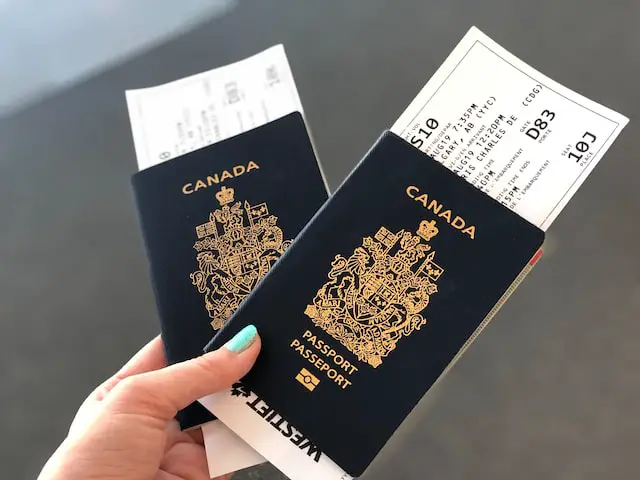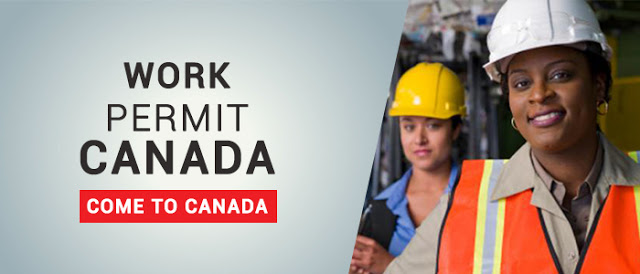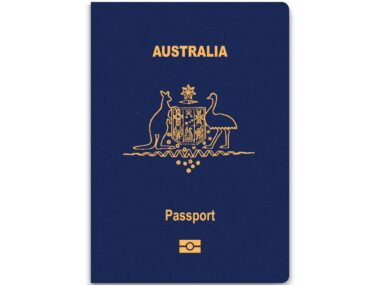Canada is known for its high standard of living, diverse culture, and excellent opportunities for immigrants.
Canadian permanent residence allows individuals and families to live, work, study, and enjoy various social benefits in Canada.
However, the process of obtaining permanent residence can be complex and requires careful planning and adherence to immigration regulations.
Understanding Canadian Permanent Residence
Canadian permanent residence is a legal status that grants foreign nationals the right to live and work in Canada indefinitely.
Permanent residents enjoy most of the same rights and privileges as Canadian citizens, including access to healthcare, education, and social services.
However, permanent residents do not hold Canadian citizenship and cannot vote in federal elections or obtain a Canadian passport.
Pathways to Canadian Permanent Residence
There are several pathways to obtain Canadian permanent residence, each designed to cater to different profiles and circumstances. Let’s explore some of the key pathways:
1. Express Entry System
The Express Entry system is a popular and efficient pathway for skilled workers to immigrate to Canada. It manages three federal economic immigration programs: the Federal Skilled Worker Program (FSWP), the Federal Skilled Trades Program (FSTP), and the Canadian Experience Class (CEC).
To be eligible for Express Entry, candidates need to meet specific criteria related to education, work experience, language proficiency, and adaptability factors. The Express Entry system uses a Comprehensive Ranking System (CRS) to rank candidates based on their profiles and invite them to apply for permanent residence.
2. Provincial Nominee Programs (PNPs)
Provincial Nominee Programs (PNPs) allow Canadian provinces and territories to nominate individuals who have the skills and experience needed in their specific region. Each province and territory has its own set of eligibility criteria and streams under their PNP.
Candidates who receive a provincial nomination can then apply for permanent residence through a separate application to Immigration, Refugees and Citizenship Canada (IRCC).
3. Family Sponsorship
Canadian citizens and permanent residents have the opportunity to sponsor their eligible family members for permanent residence.
The Family Class sponsorship program includes categories such as spouse or common-law partner sponsorship, dependent children sponsorship, and parent or grandparent sponsorship. Sponsors must meet specific income requirements and demonstrate the ability to support their sponsored family members.
4. Canadian Experience Class (CEC)
The Canadian Experience Class (CEC) is designed for individuals who have gained skilled work experience in Canada. To be eligible, candidates must have at least one year of full-time work experience in a skilled occupation and meet language proficiency requirements. The CEC is an excellent pathway for international students and temporary foreign workers already in Canada to transition to permanent residence.
5. Quebec Immigration Programs
Quebec, as a distinct province, has its own immigration programs and criteria. The Quebec Skilled Worker Program (QSWP) is one of the pathways to permanent residence in Quebec. Candidates are assessed based on factors such as education, work experience, language proficiency, and adaptability. Successful applicants receive a Quebec Selection Certificate (CSQ) and can then apply for permanent residence to IRCC.
6. Atlantic Immigration Pilot Program (AIPP)
The Atlantic Immigration Pilot Program (AIPP) is a unique initiative aimed at attracting skilled workers to Canada’s Atlantic provinces: Newfoundland and Labrador, Prince Edward Island, Nova Scotia, and New Brunswick. Employers in these provinces can hire foreign nationals through the AIPP, and candidates can apply for permanent residence once they receive a job offer from a designated employer.
7. Start-up Visa Program
The Start-up Visa Program is designed for entrepreneurs who wish to start a new business in Canada. To be eligible, candidates must have a qualifying business idea, secure a letter of support from a designated organization, and meet language proficiency and financial requirements. Successful applicants receive permanent residence and can establish their innovative business in Canada.
8. Self-Employed Persons Program
The Self-Employed Persons Program is for individuals with experience in cultural or athletic activities who can make a significant contribution to Canada’s cultural or athletic landscape. Applicants are assessed based on their experience, intention to be self-employed, and ability to contribute to Canada’s cultural or athletic scene. Successful applicants can obtain permanent residence and pursue their self-employment endeavors.
9. Rural and Northern Immigration Pilot
The Rural and Northern Immigration Pilot is a community-driven program aimed at attracting skilled workers to smaller communities in Canada. Participating communities can recommend eligible candidates for permanent residence based on their local labor market needs. Candidates must receive a community recommendation and meet the federal eligibility requirements to apply for permanent residence.
10. Agri-Food Immigration Pilot
The Agri-Food Immigration Pilot is specifically designed to address labor shortages in the agri-food sector. It offers a pathway to permanent residence for eligible workers in specific occupations within the sector. To qualify, candidates must have a valid job offer from an eligible employer and meet other program requirements.
11. Care givers Program
The Caregivers Program provides an opportunity for foreign nationals with experience in caregiving occupations to apply for permanent residence. There are two pathways within this program: the Home Child Care Provider and the Home Support Worker. Candidates must have at least two years of work experience in the respective occupation, meet language requirements, and have a job offer from a Canadian employer to be eligible.
Eligibility Requirements for Canadian Permanent Residence
While the specific eligibility requirements vary depending on the pathway chosen, there are some common factors to consider when applying for Canadian permanent residence:
1. Education and Skills
Having a higher level of education and possessing specialized skills or qualifications relevant to the Canadian labor market can significantly enhance your eligibility for permanent residence. It is important to have your education credentials assessed by designated organizations to determine their equivalency in Canada.
2. Language Proficiency
Language proficiency in English or French is crucial for successful integration into Canadian society. Most immigration programs require applicants to undergo language tests, such as the International English Language Testing System (IELTS) or the Canadian English Language Proficiency Index Program (CELPIP), to assess their language skills.
3. Work Experience
Having relevant work experience, particularly in skilled occupations, is often a requirement for Canadian permanent residence. The duration and nature of work experience required vary depending on the pathway. It is essential to provide detailed documentation and references to support your work experience claims.
4. Age
Age can be a determining factor in immigration programs. While there is no strict age limit for most pathways, candidates who are younger often receive higher points in the application process. This is because younger applicants are perceived to have a longer working life ahead and can contribute more to the Canadian economy.
5. Adaptability Factors
Adaptability factors take into account various aspects, such as previous education or work experience in Canada, having a job offer or family connections in Canada, or completing studies in Canada. These factors can enhance your eligibility for Canadian permanent residence.
Step-by-Step Application Process
The application process for Canadian permanent residence can be intricate and time-consuming. Here is a general step-by-step overview of the process:
1. Determine Your Eligibility
Research and identify the immigration pathway that best suits your profile and circumstances. Understand the eligibility criteria, requirements, and any specific conditions associated with the chosen pathway.
2. Gather Required Documents
Collect all the necessary documents required for your permanent residence application. These may include identification documents, educational credentials, language test results, work experience letters, and other supporting documents.
3. Create an Express Entry Profile
If you choose the Express Entry system, create an online profile through the IRCC website. Provide accurate and comprehensive information about your skills, education, work experience, and language proficiency.
4. Submitting an Expression of Interest (EOI)
Express your interest in immigrating to Canada by submitting an Expression of Interest (EOI) in the Express Entry pool. This allows you to showcase your qualifications and be considered for an Invitation to Apply (ITA) for permanent residence.
5. Provincial Nominee Programs (PNPs) Application Process
If you are applying through a Provincial Nominee Program (PNP), research and identify the specific program and stream that matches your qualifications. Follow the application process outlined by the respective province or territory.
6. Family Sponsorship Application Process
For family sponsorship, ensure that you meet the requirements to sponsor your family member and that they meet the eligibility criteria as a sponsored person. Submit the sponsorship application along with supporting documents.





